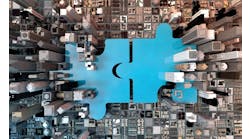Dedham, Mass., March 11 - The worldwide market for radar level devices is expected to grow at a compounded annual growth rate (CAGR) of 5.9% over the next five years. The market was $316 million in 2007 and is forecasted to be $421 million in 2012, according to a new ARC Advisory Group study.
Suppliers have been successful in addressing user requirements by offering products with improved accuracy and broader frequency ranges. “Radar level measurement technology has advanced significantly and is more broadly applicable in a number of difficult level measurement applications, such as bulk solids. Increased accuracy, along with easy installation and a low maintenance profile, even when applied in harsh process environments, have helped radar level devices enjoy greater acceptance among users, making it one of the fastest growing level measurement technologies,” according to Analyst Allen Avery, the principal author of ARC’s “Radar Level Devices Worldwide Outlook.”
Market growth is largely due to a substantial increase in shipments to the chemical and marine segments. While the chemical and marine segments were the standouts, other industry sectors posted strong, above average growth. Food & beverage, pharmaceuticals, and water & wastewater all experienced double-digit increases in shipments in recent years.
Non-contact, or microwave radar level devices, still account for the majority of shipments. However, guided wave radar has experienced breakneck growth in recent years. Guided wave radar devices will continue to see strong growth because they typically meet process industry requirements such as loop power, low cost, and applicability to both liquid and bulk solid mediums. They are also ideal for interface detection in oil & gas and refining applications and are largely immune to foam in agitated process vessels.
Regionally, suppliers can expect to see the largest growth in Asia, where heavy investment in new plant construction continues in core sectors such as chemical, petrochemical and refining, where radar level devices are used extensively. In the mature North American and Western European markets, suppliers will largely rely on replacement business, as users swap out older technologies such as DP cells.



